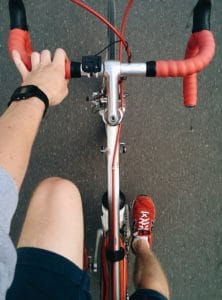Do Hearing Aid Batteries Expire?
Have you ever opened that kitchen drawer and found a little hoard of stuff you forgot you had? Maybe some stray rubber bands, a...
Thursday, January 15 at 7 PM – Dr. Daniel Eichorn is hosting an educational webinar focused on Inspire® therapy. Register today!
Posted on January 11, 2019
Hearing LossNew Year’s resolutions typically follow a common theme. Many in Exton vow to become healthier in 2019, and one of the most popular ways to do so is to join a spin class. Before you hit the gym, take heed: spinning could be hazardous to your hearing.

Indoor cycling is one of the most popular fitness classes in Exton, and with good reason: it is an excellent cardiovascular workout that can burn as much as 600 calories an hour – plenty to offset all the holiday sweets you packed away the past couple of months. The downside to an organized fitness activity such as spinning? The loud music your instructor is likely to play during class in order to keep you motivated and encourage you to pedal harder.
Noise exposure is a leading cause of hearing loss. Volume levels that exceed 85 decibels (dB) cause damage to the hair cells of the cochlea and can lead to irreversible hearing loss over time. How much time depends on how loud the noise; at 85 dB, your permissible safe exposure time is about eight hours, but increase the volume to 100 dB and damage can occur in as little as 15 minutes. Studies have shown music levels in an average spin class clock in at about 113 dB, loud enough to cause damage in just a few minutes.
There are additional hearing hazards you may encounter during your workouts, as well. Aerobics and other organized fitness classes that incorporate music into their routines pose similar risks. Additionally, you’ll have to contend with clanking weights, motorized treadmills, Elliptical machines and people who insist on grunting at the top of their lungs with every repetition. These all create a noisy atmosphere that is especially bad early in the year, when those resolutions are still fresh in everybody’s minds.
This does not, however, give you an excuse to skip your workouts.
In order to prevent damage to your hearing at the gym, check with your instructor to see if they are willing to turn the music down to a reasonable volume level. If you are unsure just how loud the music is playing, there are a number of free decibel meter smartphone apps that provide fairly accurate readings.
You can also invest in a pair of quality earplugs. Custom silicone plugs made from impressions of your ear canals will provide the best protection and comfort, but even foam earplugs from the corner drugstore will help. Schedule your workouts for quieter, off-peak hours to avoid crowds.
For additional tips on getting healthy without sacrificing your hearing, contact your Exton audiologist today!
Have you ever opened that kitchen drawer and found a little hoard of stuff you forgot you had? Maybe some stray rubber bands, a...
Tympanosclerosis is a post-inflammatory condition affecting the tympanic membrane, or eardrum, and middle ear. Tympanosclerosis can result in hearing loss or be asymptomatic and...
Otomycosis is a fungal ear infection affecting the outer ear. Fungal ear infections are less common than bacterial infections, making up 10% of all outer...
Ear pressure is the feeling that your ears are full, stuffy or plugged. Often compared to the sensation of having water in your ears,...